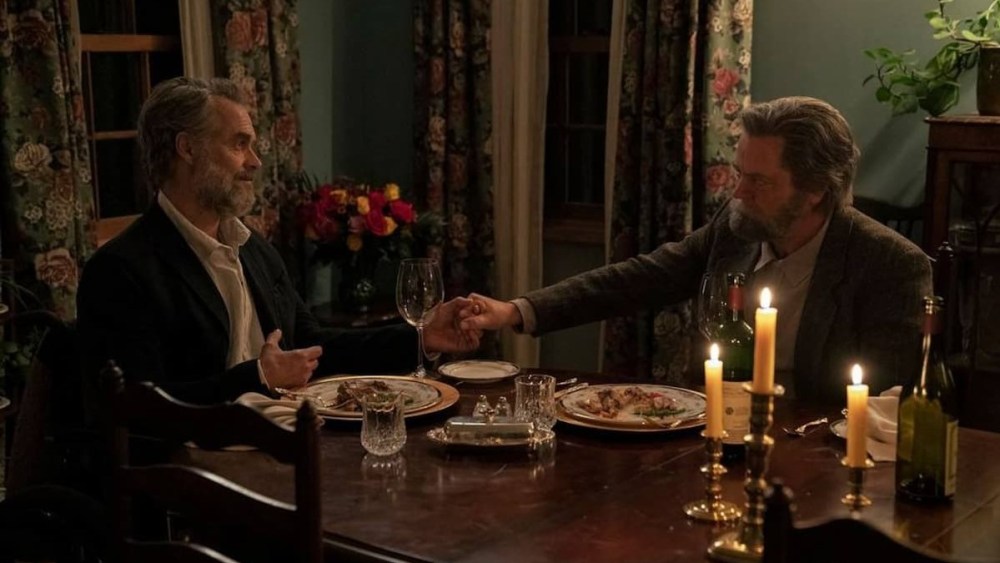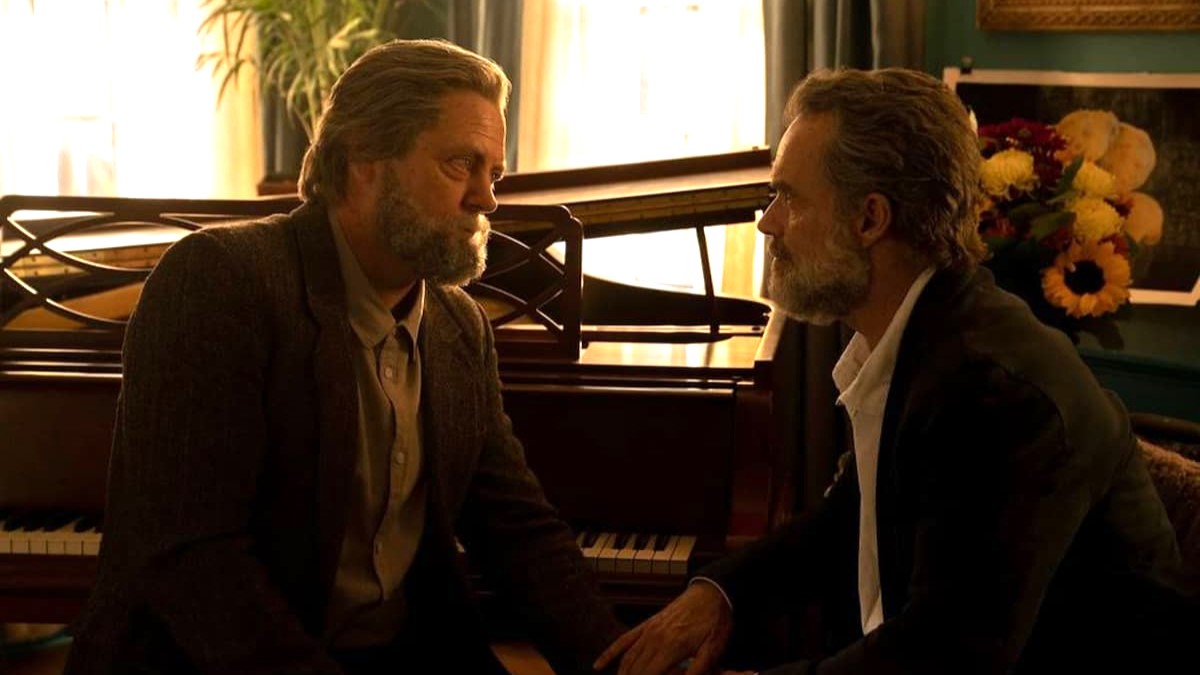While the events of the original The Last of Us only gave us a glimpse into Bill’s history with Frank, HBO’s adaptation goes a step further. It delves deeper into the pair’s relationship in a way that ultimately makes their journey an even more tragic one to experience, and it’s among the show’s biggest triumphs so far.
During my own playthrough of the game, I was hesitant about Bill due to his standoffish behavior. He’s abrasive, rude, and honestly a bit of a jerk. It’s clear he’s paranoid, quirky, and a survivor through his own brutally cold approach to life after the outbreak, but he’s hard to like… at first. In time, Bill becomes a hero of the story, but we still never really get to see the personality that lies underneath his prickly facade.
HBO’s adaptation, though, has shed new light on a different side of his character. It’s certainly helped me to understand why he acts in such a way, that his insanity is in many ways why he has survived. I’m going to hazard a guess that many others will feel the same, that after watching the TV adaptation and appreciating his more vulnerable side, he’ll become much more likable.
For those who haven’t played The Last of Us, it is implied that Bill is gay via a suicide letter that’s left for players to discover. The note mentions the toxic nature of their relationship and why Frank separated from him to live his life to the fullest. Of course, it doesn’t turn out that way since he tragically becomes infected and ultimately dies, but you still pick up the melancholy nuances of that sad history through the letter, as well as comments made by Bill.
Of course, HBO’s adaptation examines that story in much greater detail. It provides additional depth to these characters and allows us to grow with them when the infection first started. At the beginning of Episode 3, we witness Bill‘s paranoia paying dividends as he to his advantage by stocking up on inventory and setting up a perimeter while others met their unfortunate end. When Bill meets Frank, you can sense a change in character when he lets his guard down and provides shelter even despite knowing the risks. Additionally, his mannerisms almost come off as shy since he looks like a deer in the headlights every time Frank looks at him, which is rather sweet. Expanding on his timid persona, I think, helps the audience better relate to him, which only dials up the emotional response to watching how everything pans out in the end.
There’s this sense of raw emotion between the two, which is a result of excellent writing and direction but largely the outstanding performances from actors, Nick Offerman (Bill), and Murray Bartlett (Frank). Their interactions are so believable because they go through typical situations as a couple. Sometimes they viciously fight; other times, they want to make a cute little garden.
It’s nice to see that the TV adaptation didn’t stray away from the toxicity of their relationship, given that it’s such an important aspect of the original source material. But, unlike the games, their opposite personalities don’t drive them apart, and they try to establish compromises throughout the episode. I think it’s this theme of perseverance that compels the audience to root for Bill and Frank by the episode’s end.
While the game showcases Bill’s loneliness and Frank’s demise, the TV adaptation displays a death that players may not be anticipating. In the final part, the couple has grown old and has learned to appreciate their time together. So, rather than the detached interpretation of the original, HBO’s rendition shows that there is life in this hellish world, and there is also death — the natural sort.

What makes HBO’s The Last of Us more heartbreaking is the fact that we got to experience the characters’ lives in the span of multiple years. Not only did we laugh with them, but we saw their vulnerable sides when they were alone. As a result, it’s extra saddening to watch how it concludes when Frank’s health begins to deteriorate after we have gone through so many emotions in their journey.
You could say that this version is somewhat of a bittersweet happy ending because they relatively choose to die together and not the other way around. In addition, the end of Episode 3 plays the melancholy melody of “On the Nature of Daylight” by Max Richter, which has been in several impactful scenes, like Shutter Island and Punch Drunk Love.
HBO’s The Last of Us arguably achieved its high water mark of the series so far simply by exploring a minor storyline in the game. In doing so, it’s enhanced one of the game’s more memorable characters not merely by dialing up the tropes of his in-game personality but by showcasing something deeper. It’s exactly the sort of meaningful expansion of the game’s lore that I want to see more of moving forward.


